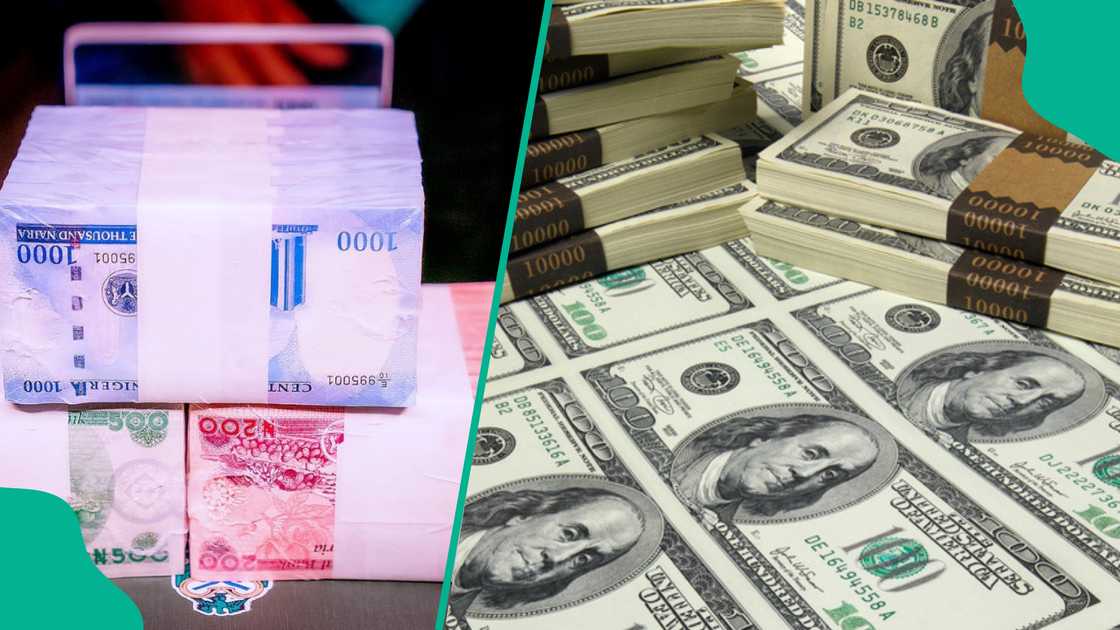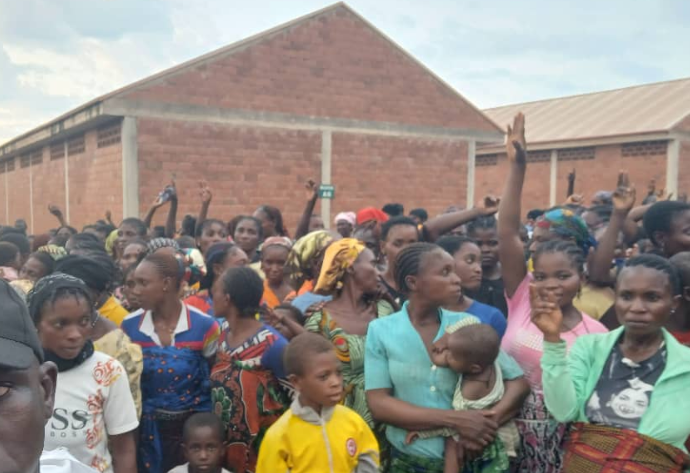Legit.ng journalist Zainab Iwayemi has 5-year-experience covering the Economy, Technology, and Capital Market.
The Nigerian naira has lost almost all of its purchasing value over the past 65 years, with N100 in 1960 being roughly N1.1 million in actual terms by early 2025, figures published by World Data have shown.

Source: Getty Images
The sharp decline highlights the long-term fragility of Nigeria's macroeconomic foundations and is driven by ongoing inflation, currency devaluations, and economic mismanagement.
Through decades of price hikes and policy instability, World Data, which compiles statistics from institutions including the World Bank Open Data, World Data Lab, and the World Data System under the International Science Council, charted the naira's collapse.
“While N100 remains nominally unchanged, what has changed drastically is its purchasing power,” the platform explained. “As inflation rises, the quantity of goods and services that money can buy falls. That’s the essence of what we see in Nigeria today.”
In 1960, for instance, N100 could purchase 20 sacks of rice. Those same bags cost N539,000 in 1973, and in 2025, two sachets of pure water can hardly be purchased for N100. Over the course of the 64-year span, the total inflation rate reached an astounding 1.11 million percent. This indicates that an item that cost N100 in 1960 is now worth nearly N1.1 million.
In 2024, the naira lost 19.81 percent of its value, resulting in the biggest decline in purchasing power. The year's 32.5 percent inflation rate was one of the highest since the nation's independence. The average annual inflation rate was 16.5% between 1960 and 2024, although there were certain decades when it spiked far higher.
Further illustrating the fall, World Data pointed out that by 1984, N107,000 could only buy 500 cups of garri, whereas in 1980, N189,000 could buy half a ton of corn. Another example of the damaging impact of inflation is the fact that in 2000, N1,100 only bought 20 sticks of cigarettes.
Tilewa Adebajo, an economist and the CEO of CFG Advisory, attributed the long-term currency depreciation to erratic and poorly implemented government reforms. He emphasised the grave consequences of macroeconomic instability in an interview with the Nigerian Tribune.
“Nigeria’s GDP is currently around $200 billion, making it the fourth-largest economy in Africa after Egypt, South Africa, and Algeria,” Adebajo said. “But due to low productivity, devaluation, and stagflation, the country has lost over $300 billion in economic value.”
Adebajo criticised the federal government's 18-month economic reform agenda, claiming that its execution had errors and produced inconsistent results. One of the most noticeable effects was the naira's decline from N450 to more than N1,700 per US dollar. These adjustments, along with the elimination of fuel subsidies, led to rising interest rates, inflation, and a decline in buying power.
Adebajo suggested a three-pronged strategy to reverse the economic downturn: lower the national debt, raise Nigeria's credit score, and carry out structural changes to boost investment and productivity.
Additionally, he urged the government to increase oil production to the levels observed in 2009 and 2014, when investor inflows peaked at $22 billion, and to leverage its oil assets by selling joint venture stakes, potentially raising $30 to $50 billion.
“The government must align monetary, fiscal, trade, and investment policies to steer the economy out of this quagmire. Anything short of this will perpetuate Nigeria’s economic challenges,” Adebajo warned.

Source: Getty Images
Legit.ng reported that Bismarck Rewane, the Chief Executive Officer (CEO) of Financial Derivatives Company, has projected that the naira will trade between N1,600 and N1,650 in the official foreign exchange market in June and July.
He cited data that indicated effective measures by the Central Bank of Nigeria to manage money supply growth, which peaked at 78% in May last year, as the basis for his projection about the Nigerian currency.
He gave this projection while speaking at the recent Lagos Business School breakfast club meeting.
PAY ATTENTION: Сheck out news that is picked exactly for YOU ➡️ find the “Recommended for you” block on the home page and enjoy!
Source: Legit.ng








-1750077081974.jpg)


